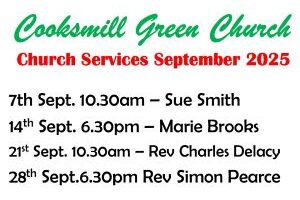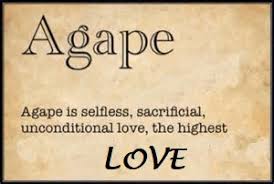Thought for the Week – Birth to Resurrection. 7th Feb. 2021
Well here we are Advent and Christmas now just a memory. In just over a week we’ll be at the beginning of Lent leading us up to Easter.
In this short period between I’ve been thinking about these two festivals. Both seasons are highly visible outside the church walls. Shopping centres and people’s houses festooned with decorations and lights (all of which I love by the way) some of them even reflect the true message of the season (and yes I can feel a little cynical sometimes too). At Easter, the shops are full of Easter Eggs and Easter Bunnies (and I love the chocolate too) but sadly with very few hints as to why, and they’re often there before the Christmas season has even had a chance to fade! We do have Hot Cross Buns, but I fear they’ve lost their impact now we see them practically all year round. For Christians it’s often said that Easter is far more important than Christmas, and in many ways that‘s true. But of course without the manifestation of God through the birth of Jesus in Bethlehem, Easter wouldn’t have happened, and without Easter the whole concept of Christmas wouldn’t have happened either. Both have their place in the hearts of Christians, and in the Church calendar.
Every day, somewhere in the church, people are reciting the creed. After the first four lines about God which David reminded us of last week we read:
I believe in Jesus Christ, his only Son, our Lord,
who was conceived by the Holy Spirit,
born of the Virgin Mary,
suffered under Pontius Pilate,
was crucified, died, and was buried;
he descended to the dead.
On the third day he rose again;
he ascended into heaven,
he is seated at the right hand of the Father,
and he will come to judge the living and the dead.
Let me say here that the creed is a wonderful statement of faith and one we should embrace within our faith journeys provided (again as reminded last week) it doesn’t become so familiar we start to ‘rattle through it mindlessly’
So there we have it, within Christmas, Easter and the Creed we declare to the wider world that Jesus was born, He was crucified, He died and rose again. But what about the why? And what about all the bits in between? The wonderful teachings, the parables and examples of how we should live, about our relationships with each other and with God – and His salvation. Of course many of these principles do manifest themselves in the spirit and traditions of both the festivals, within churches and wider society. But is there the same evidence of Jesus outside the church the rest of the year?
I don’t want to be all negative about all this, so let’s look at some positives.
Many churches, and it must be said, other faith traditions and secular organisations too, do amazing work all year, evidenced in food banks, shelters and day centres for the homeless, helping them find employment and permanent housing, initiatives to help poorer and underdeveloped countries, the list is endless. And I’m sure Jesus is seen and felt in many of those activities. But how do we get those things to permeate everyday life in the same way Santa Claus and Easter Eggs do? One of the problems is they’re not as commercially viable to business – there’s nothing to sell and make a profit from.
But to take the positive again. Through example and pressure the works I’ve mentioned can and do find their way into some businesses, for example donations to food banks by supermarkets. Some company directors and bosses do try, in spite I’m sure of other pressures within the boardroom, to make moral, ethical and socially responsible decisions that are not profit related. But the cynical could easily say that these decisions are made by clever PR departments helping the company to look good. I suspect there is some of each.
I haven’t read a novel for some time but recently I was encouraged to read the new book by Richard Osman ‘The Thursday Murder Club’. I’ve only just started it and, despite its title, it’s a fun, sometimes sad, light hearted read about a retirement village with lots of harmless and sometimes amusing stereotyping. I won’t give away anything about the plot, but it’s set in a retirement complex which has been developed by a local businessman Ian Ventham. It’s idyllic with excellent facilities and with the comfort of the residents truly catered for – if only all retirement/care homes could be as good. But of course it comes at a price and the developer certainly makes money from the residents, but at least they’re getting some value. At one point we see Mr Ventham going into a supermarket coffee shop.
‘Is all your coffee fair trade?’
‘Yes, all fair trade,’ smiles the young woman serving.
‘Shame,’ says Ian. He doesn’t want to pay an extra fifteen pence to help someone he’ll never meet in a country he’ll never go to. ‘Cup of tea please. Almond milk. (pg. 22)
So here is someone providing wonderful facilities for the elderly, turning into someone who doesn’t give a jot! Why? Because he can’t see and doesn’t know the people concerned and they can’t see him. And rather than make him a profit they would cost him a few pennies extra on his cup of coffee!
I’m sure no one reading this is like Mr. Ventham but truthfully, how often do we consider the ethical and moral implications of, for example, our buying decisions if we can save a few bob? Are we as vocal as Jesus would have been about low wages, slave labour and such like? Are we prepared to pay a little more so that others can earn a living wage, Are we prepared to pay more tax (there’s a difficult one) so that nurses and auxiliary workers can have a decent standard of pay? Of course much of this would rely on businesses and governments husbanding and distributing the additional profits and resources properly (that’s another subject), but perhaps this is where the church and by that I mean its people need to try and become as visible and vocal as we are at Christmas. I’ve already mentioned where we can see examples and pressure from others resulting in companies starting to do the right thing, but is there more we could do with a little thought?
It may be tricky without parties, decorations, presents and chocolate…. but we could have a go?
Steve.
Heavenly Father,
Help us in our daily lives to make right decisions.
Help us to recognise and speak out against injustice
Wherever it may be.
Guide those in power and authority
To lead with justice and wisdom,
To act with compassion and fairness to all.
Help us all to follow your lead
To make a better world for all your people.
In Jesus name. Amen











